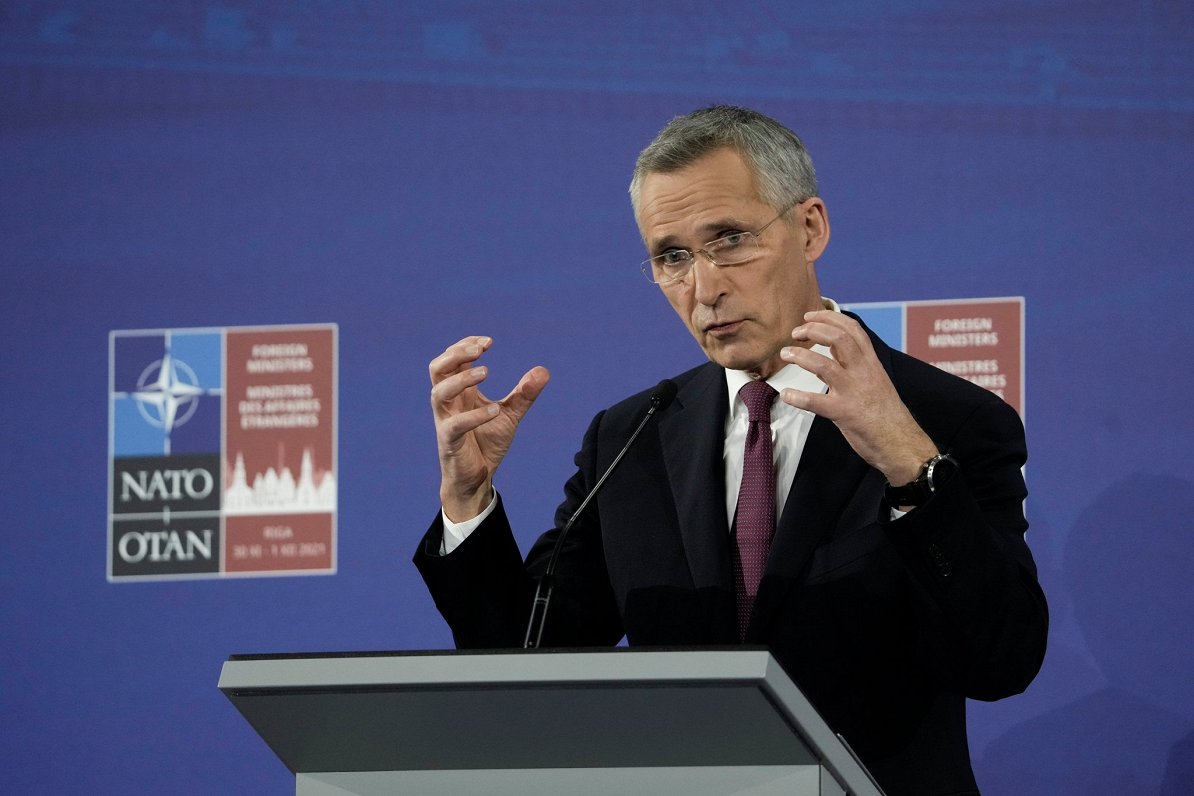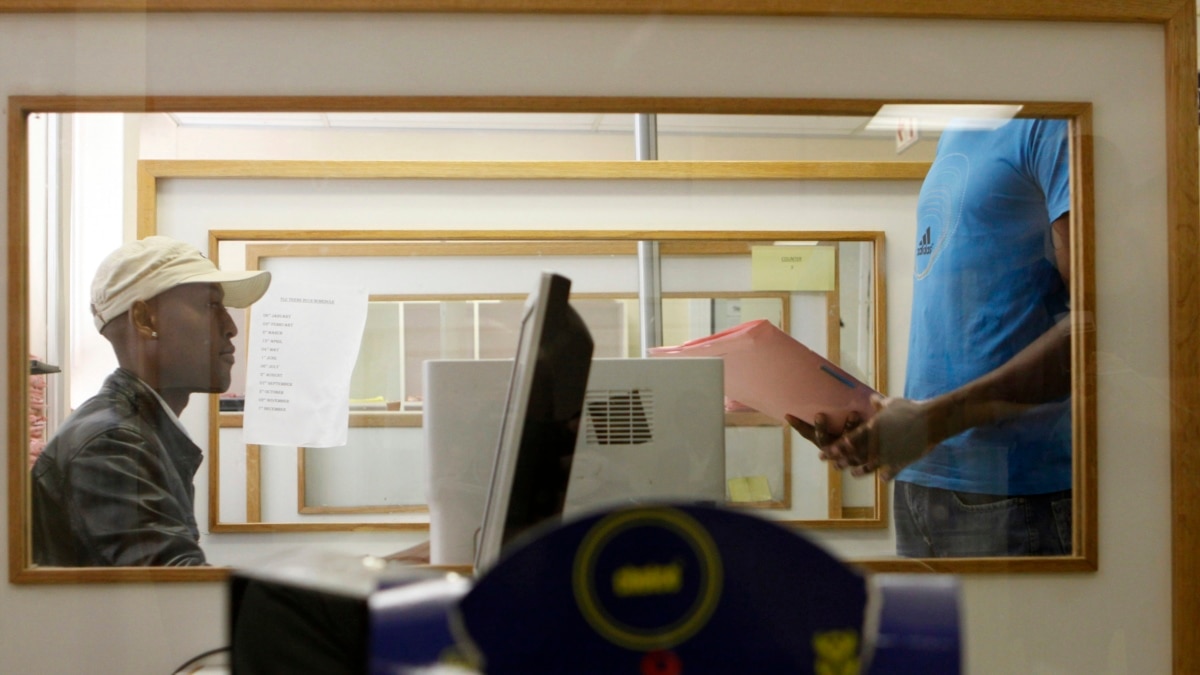The central topic of the meeting was the concentration of Ukraine and Russian troops on the Ukrainian border. The key message from NATO Secretary General Jens Stoltenberg after the meeting was that any possible military aggression on the part of Russia would have serious political and economic consequences for Russia.
Russia cannot dictate the rules to its neighbors
Ukraine and Georgia will continue to be supported on their path to joining the Alliance, including by providing a helping hand in training forces or providing intelligence. At the same time, both Stoltenberg and US Secretary of State Anthony Blinken rejected Russia’s concerns after the meeting that NATO’s actions were aggressive and provocative or that they would jeopardize Russia’s interests in the region.
NATO Secretary General Jens Stoltenberg on support for Ukraine
—
“Russia is trying to get the idea that Russia can influence what its neighbors do or don’t do. We do not want to return to a world where the great powers have the right and opportunity to determine the actions of other sovereign states, ”Stoltenberg emphasizes.
“Ukraine is an independent and sovereign country with internationally recognized borders, guaranteed by all countries of the world and also by Russia. These internationally recognized borders must be respected. And that means recognizing both Crimea and Donbass as parts of Ukraine. The idea that NATO’s support for Ukraine is a provocation is simply wrong. “
Meanwhile, Russian President Vladimir Putin said on Wednesday that Russia would insist on a dialogue with the United States and NATO on the development of firm agreements that would preclude further expansion of NATO to the east. “We will insist on concrete agreements that preclude any possible move east by NATO and the deployment of weapons systems that threaten us in the immediate vicinity of Russian territory,” Putin said during a meeting with foreign diplomats in the Kremlin.
He emphasized that he wanted legally binding agreements because NATO, according to the Kremlin’s host, had not complied with previous oral agreements on the matter.
Putin also lamented efforts to harm Russia’s development, saying he saw a growing Western threat to Russia.
Putin expressed concern that NATO’s infrastructure was spread relatively close to Russian territory and that Ukraine was concentrating its forces alongside territory controlled by Russian-backed armed formations in eastern Ukraine.
NATO Foreign Ministers’ Meeting Georgia and Ukraine, close NATO Allies, end in Riga4min
—
Support for Ukraine and Georgia will be strengthened
Stoltenberg points out that Ukraine and Georgia are long and close partners of NATO.
“They contribute to our missions and operations and aspire to become members. Ministers have made it clear that we are sticking to our decisions. Our support for their sovereignty and territorial integrity remains unchanged. And we remain committed to strengthening our support for both countries. “
US Secretary of State Anthony Blinken expressed support for Ukraine, the alliance’s most influential state.
“The Allies have a common belief that Russia should not take such steps, as well as a shared commitment – and I have certainly heard this from France, Germany and Britain – that the price will be high and the consequences of any action Russia may take. It aims to dissuade Putin from making the wrong decision regarding the aggression against Ukraine. “
NATO Secretary General Jens Stoltenberg
Photo: AFP, Gints Ivuškāns
–
–
The NATO Secretary General announced in Riga this week that the Allies had decided to launch a NATO crisis management mechanism. The Alliance also plans to ensure greater readiness by reforming team structures.
NATO’s crisis response system is set to step up intelligence, operations planning and other measures, depending on the security situation.
Lessons learned in Afghanistan
Another very important topic discussed in Riga was the lessons the Alliance can learn from its 20-year operation in Afghanistan. Following the rushed withdrawal of Allied forces from Afghanistan, the collapse of the previous Afghan government and the return of the Taliban regime, NATO conducted a comprehensive political and military assessment. Although the shortcomings are obvious, Stoltenberg emphasized that, overall, the operation still achieved its main objectives.
NATO Secretary General Jens Stoltenberg on lessons learned in Afghanistan
—
“NATO’s mission in Afghanistan was not in vain. For more than 20 years, there has been no attack on Afghanistan from Afghanistan.
Only NATO had the will and the capacity to carry out this large-scale crisis management operation. And so it is clear that crisis management must continue to be one of NATO’s core tasks, ”says Stoltenberg.
“At the same time, we must acknowledge that the international community, including NATO, the UN, the European Union and other actors, has increased its ambitions to build a nation. And this much broader task turned out to be much more difficult. That’s why we need to make sure our level of ambition is realistic in the future. “
Blinken will meet with Lavrov
NATO members and experts have also made a number of recommendations, including the need to take into account the host country’s political and cultural norms and to assess the capacity to accept and receive training and capacity building.
There is certainly a reference here to Afghanistan, whose trained security forces have subsequently proved incapable of acting alone. NATO must also consider strengthening its capacity to carry out large-scale evacuation operations in the short term.
Already on Thursday, most of the foreign ministers will also go to the meeting of the leaders of the member states of the Organization for Security and Cooperation in Europe (OSCE) in Stockholm. US Secretary of State Blinken is also scheduled to meet with Russian Foreign Minister Sergei Lavrov.
–


